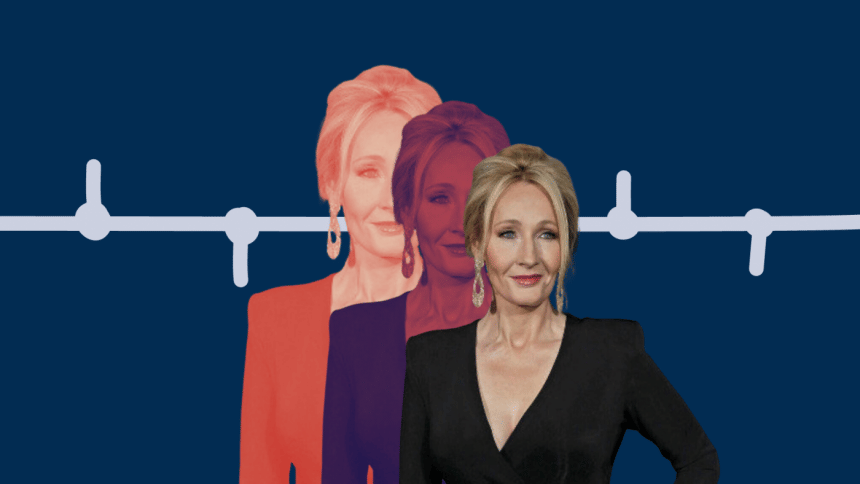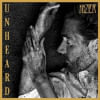The Complete Guide to JK Rowling's Downfall

Except for a few innocent souls living under a rock, it's clear to everyone that J. K. Rowling has some issues. She, along with her famous series, has been under scrutiny for the last few years. The situation is a mess, and it might be difficult to make sense of it all. Here's a tour.
Destination 1: Does fat mean bad?
The first pages of The Philosopher's Stone are littered with references to Dudley and Vernon being fat and plump. The implied meaning in the novels is to associate fatness with negative characters. Dursleys weren't the end of this either, later, Dolores Umbridge was described as a "toad". This fatphobic representation has been called into question, and rightly so.
Destination 2: Obsession with binaries
Rowling's obsession with binaries is very clear from the series itself. The simple message throughout the books is: Gryffindor is good, and Slytherin is bad. Meanwhile, the rest of the two houses sit idly just for the show. And, in Rowling's world, the morality of an act depends on the person doing the act, not the act itself. Such as when elf slavery is practised by the Malfoys, it is wrong. But when Harry owns a slave, it is supposed to be right. I think Rowling knew when she wrote the books that the act of slavery is deplorable, no matter the character of the person owning the slaves.
Destination 3: The thorny issue of racism
In a series full of mythology-laden names such as Minerva McGonagall or Sybil Trelawney, couldn't Rowling think much better while naming the only Asian character Cho Chang? Black characters don't get much spotlight in this series where characters are overwhelmingly white, but one of them is named Kingsley "Shackle-bolt". The only Irish character, Seamus Finnigan, is shown regularly blowing stuff up in the movies — a stereotypical reference to the bombings of the Irish Republican Army.
Destination 4: Antisemitism in the disguise of goblins
Since the mediaeval ages, the Jews have been stereotyped as having long, hooked noses—an attribute eerily similar to the goblins written by Rowling in the world of Harry Potter. Like the Jews in Nazi propaganda, goblins control the banks of the wizarding world and aren't to be trusted. Finally, the movies depicted the Star of David inside the Gringotts, as if hammering home the point.
Destination 5: Slavery is… okay when the slaves want it?
According to lore, elves not only serve as free slaves in wizarding families, but they also love it! They love it despite the abuse they receive at the house. Even Hagrid doesn't understand the inherent problem, instead, he justifies it by saying, "It's in their nature to serve," and continues that it would be great harm to grant them basic rights as it goes against their instincts.
Dobby is treated as an oddball among the elf community. Hermione gets mocked for her activism through S.P.E.W. In one instance, Slughorn, seeing the damage the poisonous butterbeer had done to Ron, takes precautions by having an elf taste every bottle he receives. How does Rowling say nothing against it? How does she write an article on Pottermore debating the merits of S.P.E.W.? Why don't the main characters do anything to help the house elves? Systemic abuse and justification of this unbridled slavery are too reminiscent of real-world instances of slavery and abuse that different ethnicities have faced in the past.
Destination 6: T.E.R.F. wars
Here we come to the straw that broke the camel's back — Rowling's rampant transphobia. In a series of tweets supporting transphobes and trans-exclusionary radical feminists, Rowling has made it certain that she finds trans-inclusionary language abhorrent. Not only that, she has expressed her "concerns" that trans women might be men who are predators who are trying to harass women. She even wrote an entire book on it, Troubled Blood (2020). In the book, the prime suspect, Dennis Creed, is a crossdresser who dresses up like women to harm them, feeding into the negative stereotype of transgender people. Curiously enough, her pen name, Robert Galbraith, is taken from the name of psychiatrist Robert Galbraith Heath, who incidentally was the father of gay conversion therapy. Is that a coincidence?
Rowling has also been accused of virtue signalling by retelling many elements of the series to cater to a young audience. Dumbledore being gay and Hermione being black are two prime examples. Was Hermione really black in a series where whites are the majority? If she had been black all along, why did the movies cast Hermione as white? All of these problems, along with the transphobia, call into question her attitude towards minorities and the most vulnerable people in our society. Many transgender fans have felt betrayed by Rowling's behaviour. They, like Harry, took shelter in the Hogwarts castle, where they felt accepted when society didn't accept them. But when their beloved writer goes against them, surely they are justified in feeling betrayed.
Destination 7: Was all well?
The mistreatment of minorities such as squibs, goblins, elves, werewolves, centaurs, and giants — the racism inside the wizarding world never gets resolved, leaving the gap for the rise of another Voldemort. Wizards don't reconcile with the muggle world and keep themselves hidden. The house system in Hogwarts still continues. Did any of the systemic problems really change? Aside from a few modifications, like the removal of dementors, there doesn't seem to be a larger change for the welfare of all sectors.
Destination 8: Where Do We Go?
Harry Potter was the series we grew up with. We made a whole fandom out of it, with merchandise and fan fiction, and turned it into a cultural symbol. It is disheartening to see such a series and its writer failing to recognise the basic human values of equality and justice. This article is not meant to shame anyone who still loves Harry Potter (I personally do), but to acknowledge that our beloved people aren't immune to bigotry and that we must call them to account. Hopefully, there would be a world in which all of us — muggles and magicians alike — would be treated equally and all would be well.
Sadman, as the name suggests is indeed a sad man. He got sorted in Hufflepuff at Pottermore and has been sad ever since. Send him happy quotes at :[email protected]

 For all latest news, follow The Daily Star's Google News channel.
For all latest news, follow The Daily Star's Google News channel. 








Comments